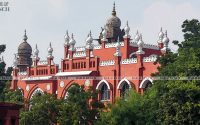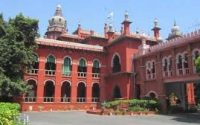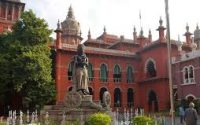$100 Website Offer
Get your personal website + domain for just $100.
Limited Time Offer!
Claim Your Website NowMadras High Court dismisses as withdrawn Rajinikanth’s plea against property tax demand for marriage hall
Source:-https://www.thehindu.com
The Madras High Court on Wednesday dismissed as withdrawn a writ petition filed by actor Rajinikanth, 70, against the demand of property tax to the tune of ₹6.5 lakh by the Greater Chennai Corporation for his Raghavendra Mandapam (marriage hall) located in marriage hall
Justice Anita Sumanth accepted a memo filed by the actor’s counsel agreeing to withdraw the case
The memo was filed after the judge warned of imposing costs on the petitioner for rushing to the court without giving sufficient time for the officials to consider his plea for tax remission.
Wastage of judicial time’
The judge told the counsel that she had been telling time and again to all litigants before the court not to waste judicial time by filing cases immediately after sending representations to officials concerned. She said litigants must send reminders as well to the officials, if required.
Justice Sumanth further said the actor should have pursued the matter with the Corporation on the basis of a representation made by him, seeking “vacancy remission” under Section 105 of the Chennai City Municipal Corporation Act of 1919, and convinced the officials about his eligibility.
In his affidavit, Mr. Rajinikanth had stated that he was the owner of Raghavendra Mandapam and he had been paying property tax regularly for the hall. The second half-yearly tax for 2019-20 was paid on February 14.
Thereafter, the pandemic broke out and there was a nationwide lockdown since March 24. The Centre extended the lockdown for quite some time and, thereafter, the State government continued it as far as Tamil Nadu was concerned.
Consequently, Raghavendra Mandapam was not let out to anyone since March 24 and it remained vacant. Advance payments received for bookings after March 24 had also been returned to the people concerned on the basis of the instructions issued by the State government, he stated.
Despite all these developments, the actor received a tax invoice from the Greater Chennai Corporation on September 10, asking him to pay ₹6,50,660 towards property tax for the marriage hall for the half-yearly period from April to September.
On September 23, the actor sent a “notice” to the Corporation, claiming that he was entitled to vacancy remission on property tax. He also cited Section 105 of the Chennai City Municipal Corporation Act of 1919 to support his claim.
The particular Section provides for remission of tax if a building has remained vacant for more than 30 days, he said, insisting that the benefit be accorded to him. Stating that his plea was not considered, he approached the court seeking a direction to dispose of his “notice”.
He also urged the court to restrain the Corporation from levying 2% penalty, with interest, for the non-payment of property tax before October 15.



